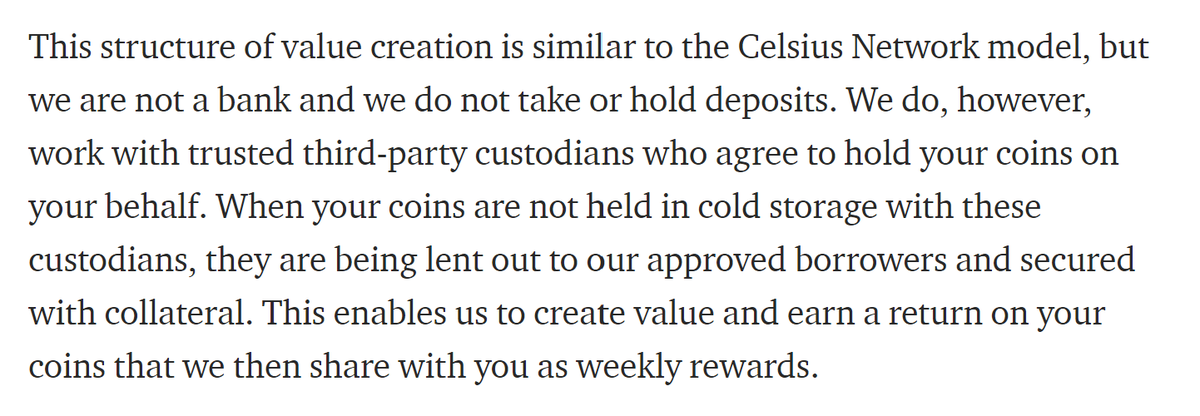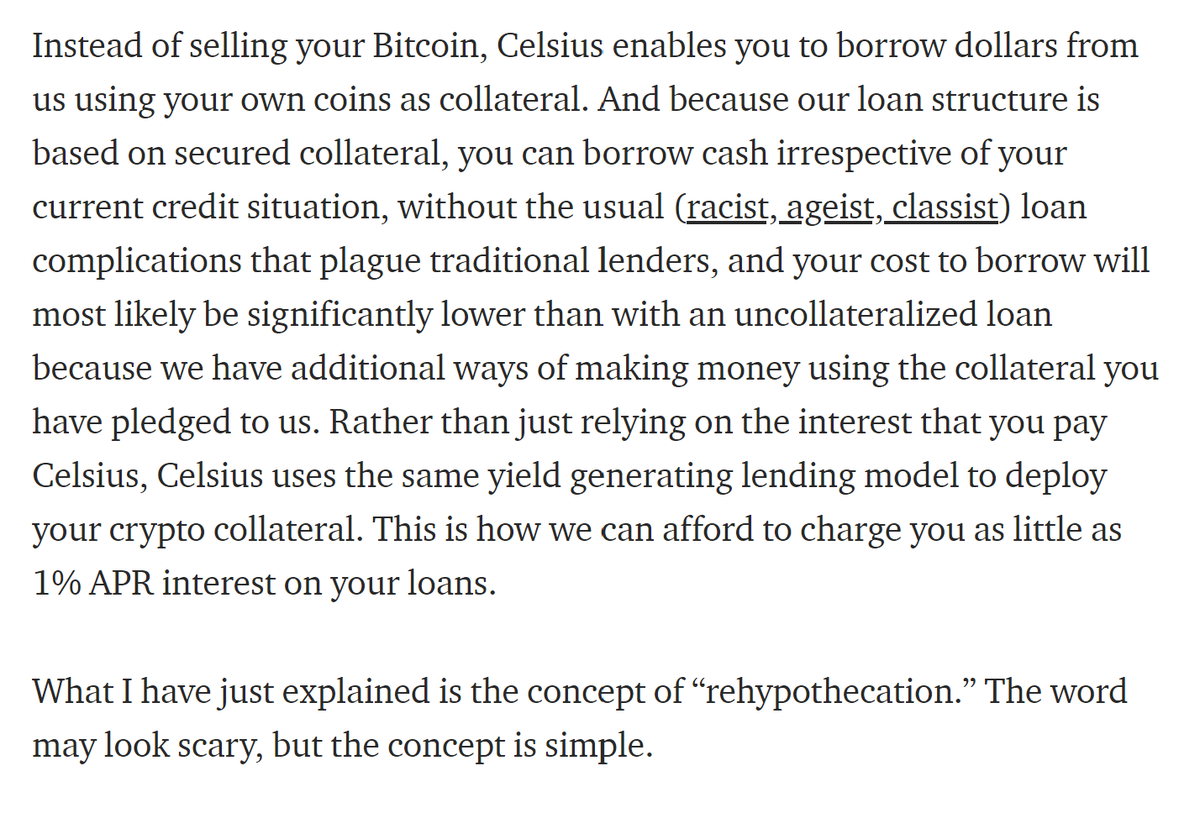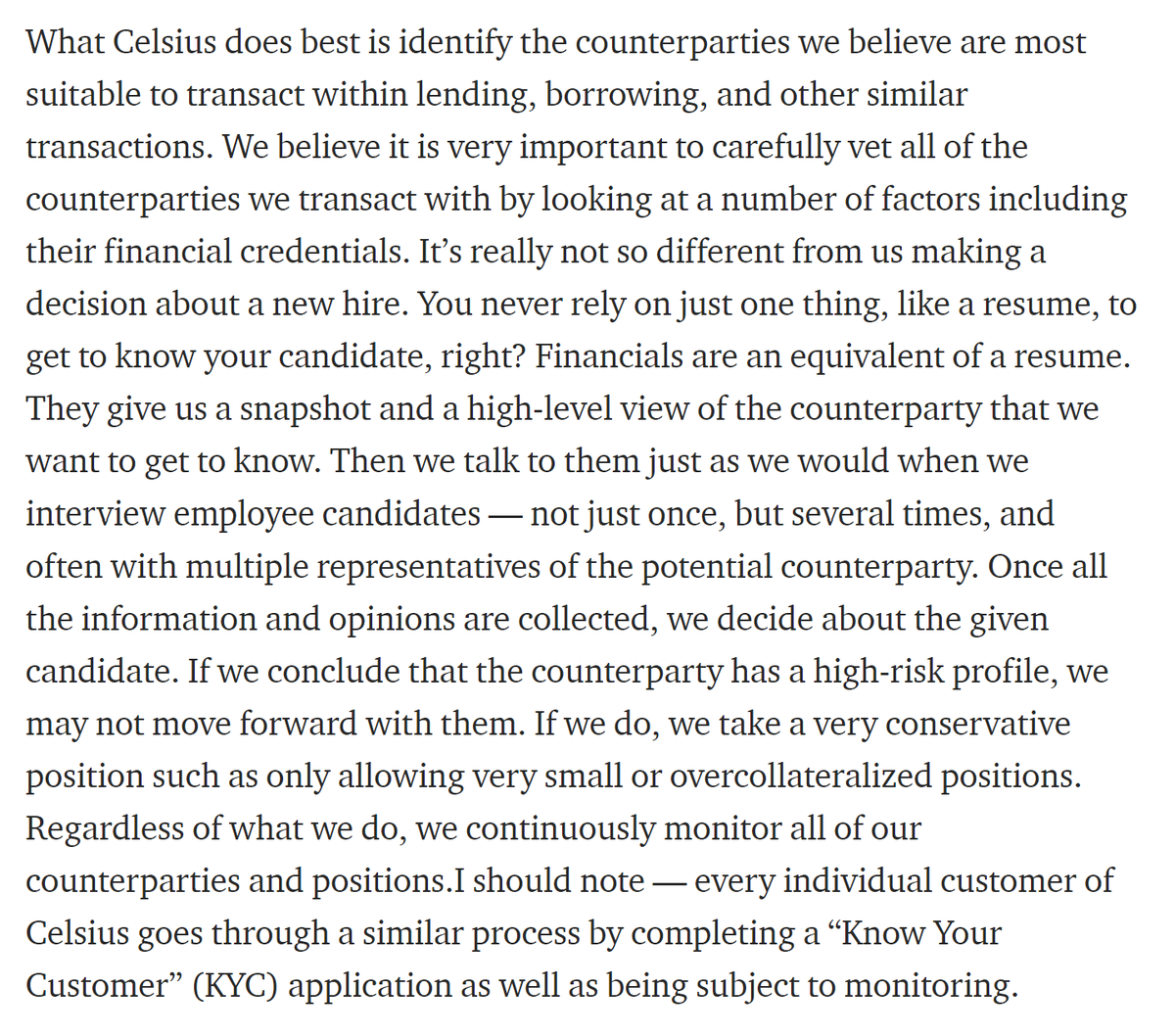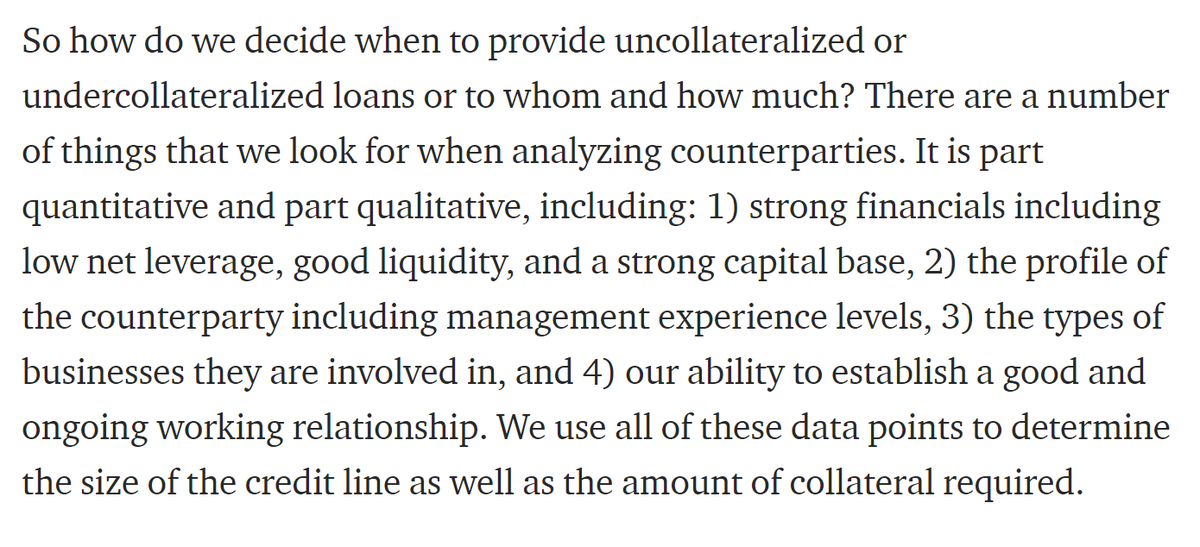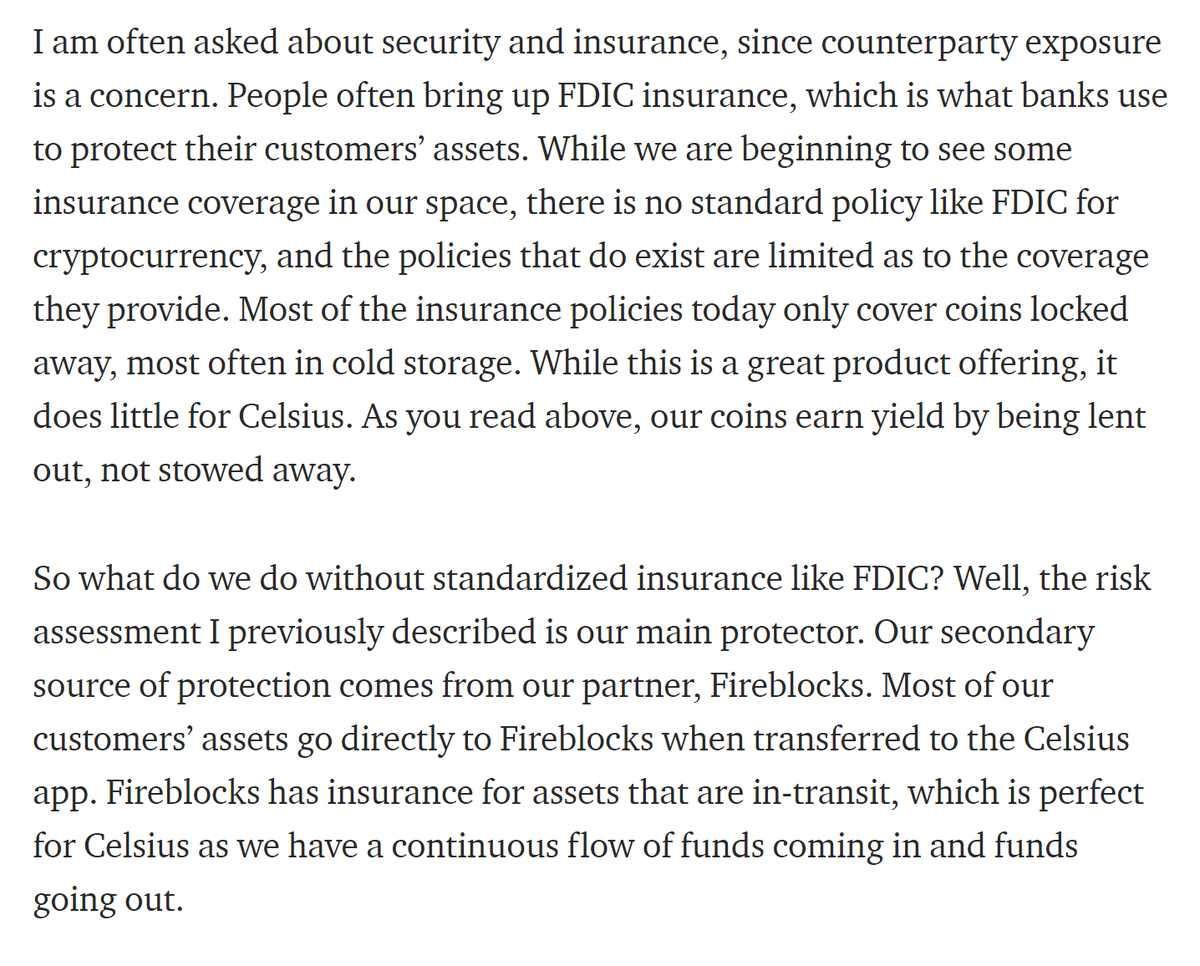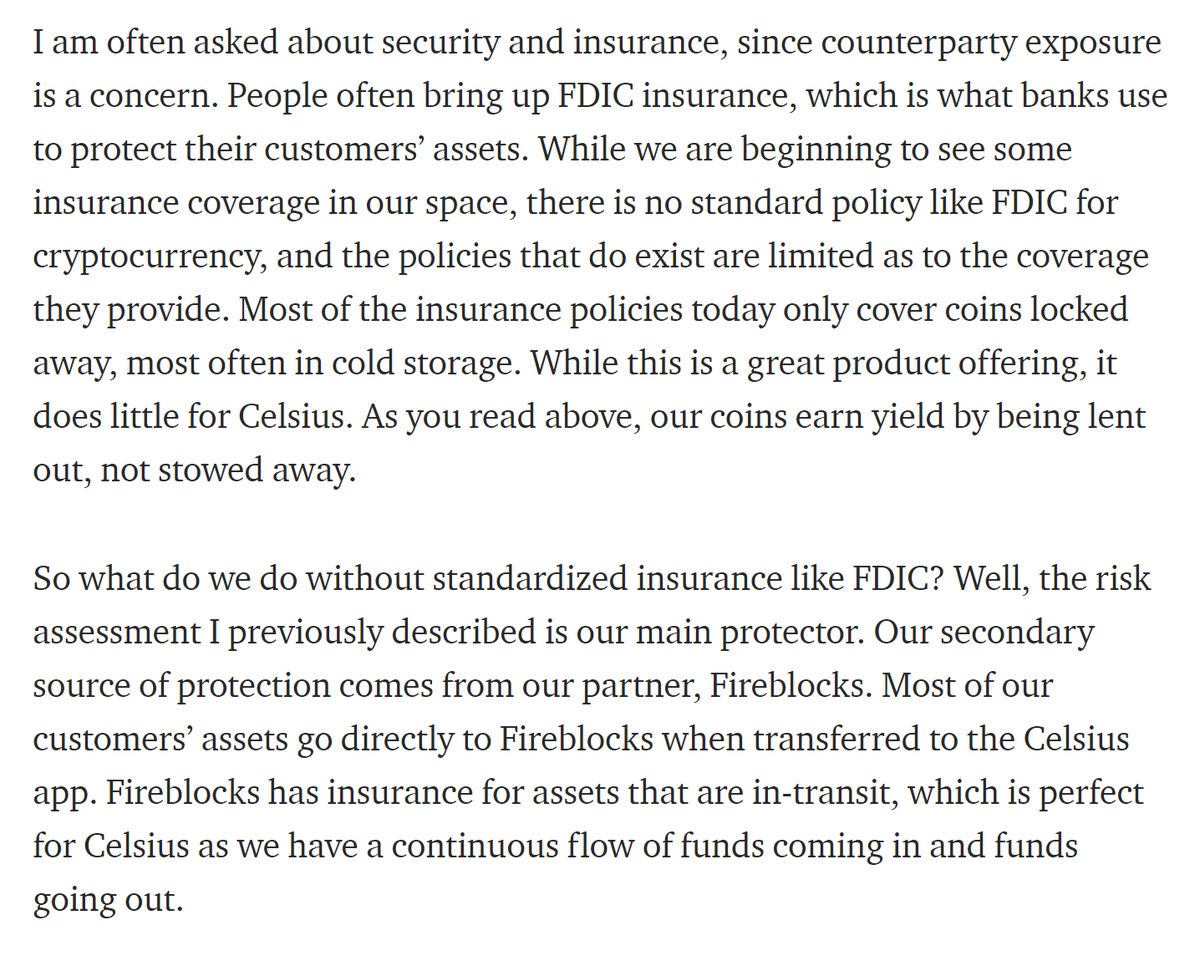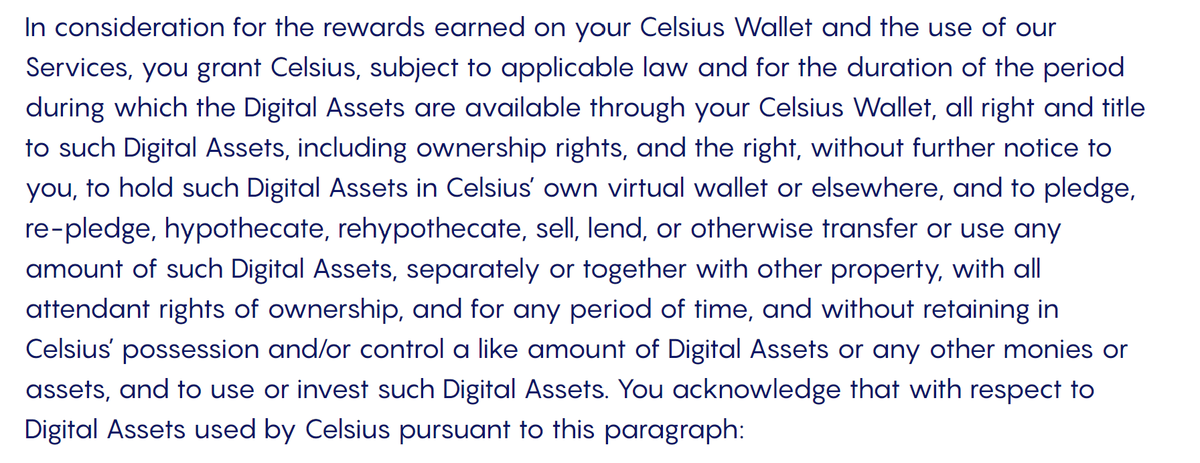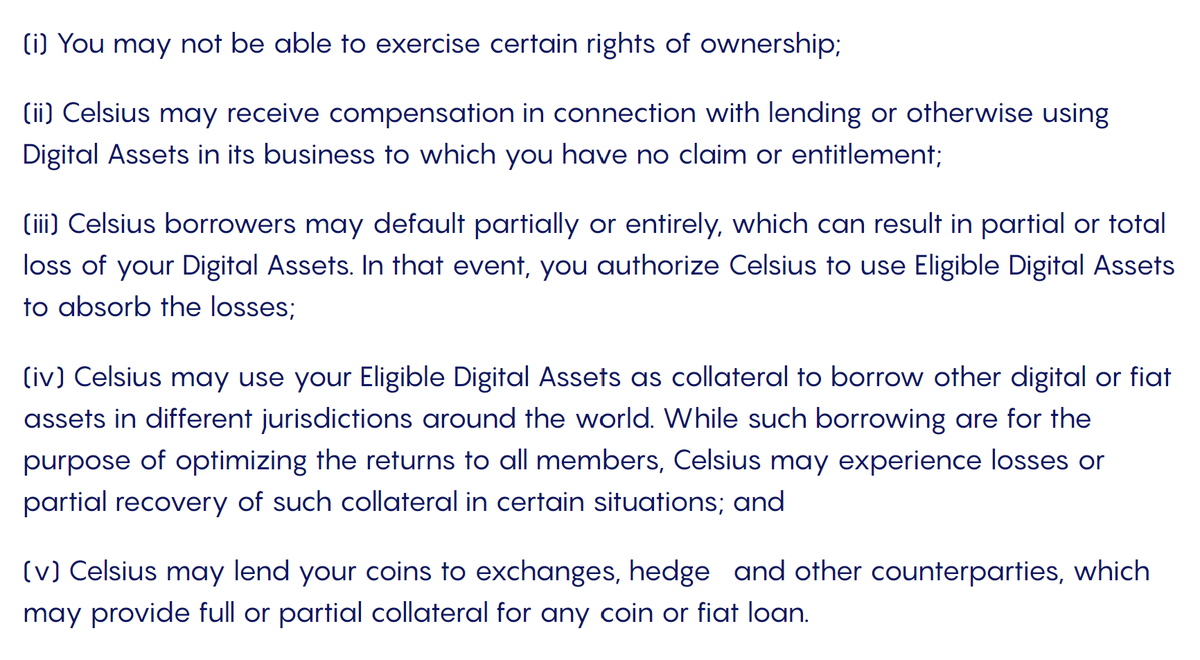The circularity of Celsius& #39;s business model, explained. You deposit coins, which are lent out to borrowers against their collateral, which is ALSO lent out against collateral, which is ALSO lent out against collateral, etc. etc.
It seems Celsius doesn& #39;t distinguish between deposited coins and pledged coins. They are all lent out. I wonder if they keep reliable records of who owns which coins?
The failed lender Cred similarly lent out both deposited and pledged coins. We now know it commingled everything - indeed it barely kept records at all.
Celsius lends out deposited and pledged coins at risk. Borrowers and depositors do not know to whom their coins have been lent. All they know is that Celsius says they are "approved borrowers". Whatever happened to "don& #39;t trust, verify"?
Celsius says it is not an investment manager and does not manage people& #39;s money. Yet it expects those who have deposited and pledged coins to trust its selection of "approved borrowers" as they would a qualified and experienced active asset manager.
Also remember that if collateral pledged against a loan is lent out, it does not matter whether the loan is under- or over-collateralised. Unless the rehypothecation can be foreclosed on demand, the loan is effectively uncollateralised. Your coins are therefore fully at risk.
There is literally no insurance covering coins you deposit or pledge with Celsius. Fireblocks protects them from being stolen in transit, but if the counterparty defaults, well, tough cheese.
Furthermore, there is no protection for your coins if Celsius fails. I haven& #39;t looked at the legal agreement, but it seems unlikely that the relationship between depositor and Celsius is a custodian relationsip, and the relationship between borrower and Celsius clearly isn& #39;t.
The writer of the blogpost either does not know what FDIC insurance covers, or chooses to give a misleading impression of what it covers. (In my experience MANY crypto companies mislead customers about the nature and coverage of FDIC insurance.)
Ok, so I& #39;m now looking at the legal agreement. If you borrow from Celsius, you aren& #39;t pledging coins as collateral, you are selling them to Celsius. There is complete transfer of title. The coins belong to Celsius and it can do whatever it wants with them.
It is, in short, a sale and repurchase agreement, otherwise known as a "repo". No wonder there is rehypothecation.
Now let& #39;s look at the depositor agreement. Oh look, there is full title transfer here, too. So you no longer own the coins you deposit. Contrary to the impression given in Celsius& #39;s blogpost, any coins in cold storage are not held in custody for you, but for Celsius.
There is no requirement on Celsius to hold ANY assets backing your deposits. Fractional reserve banking? Nah. Zero reserve.

 Read on Twitter
Read on Twitter